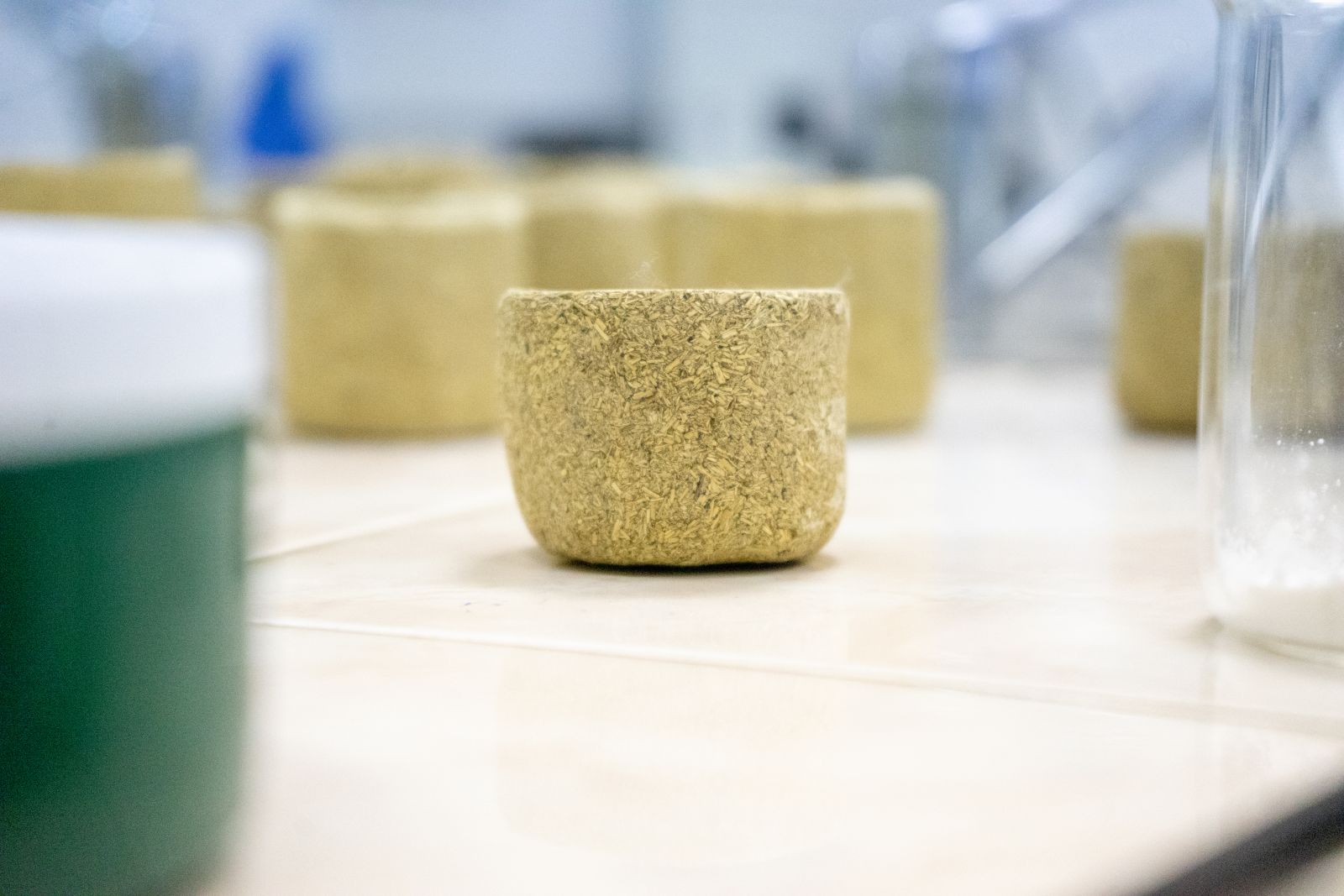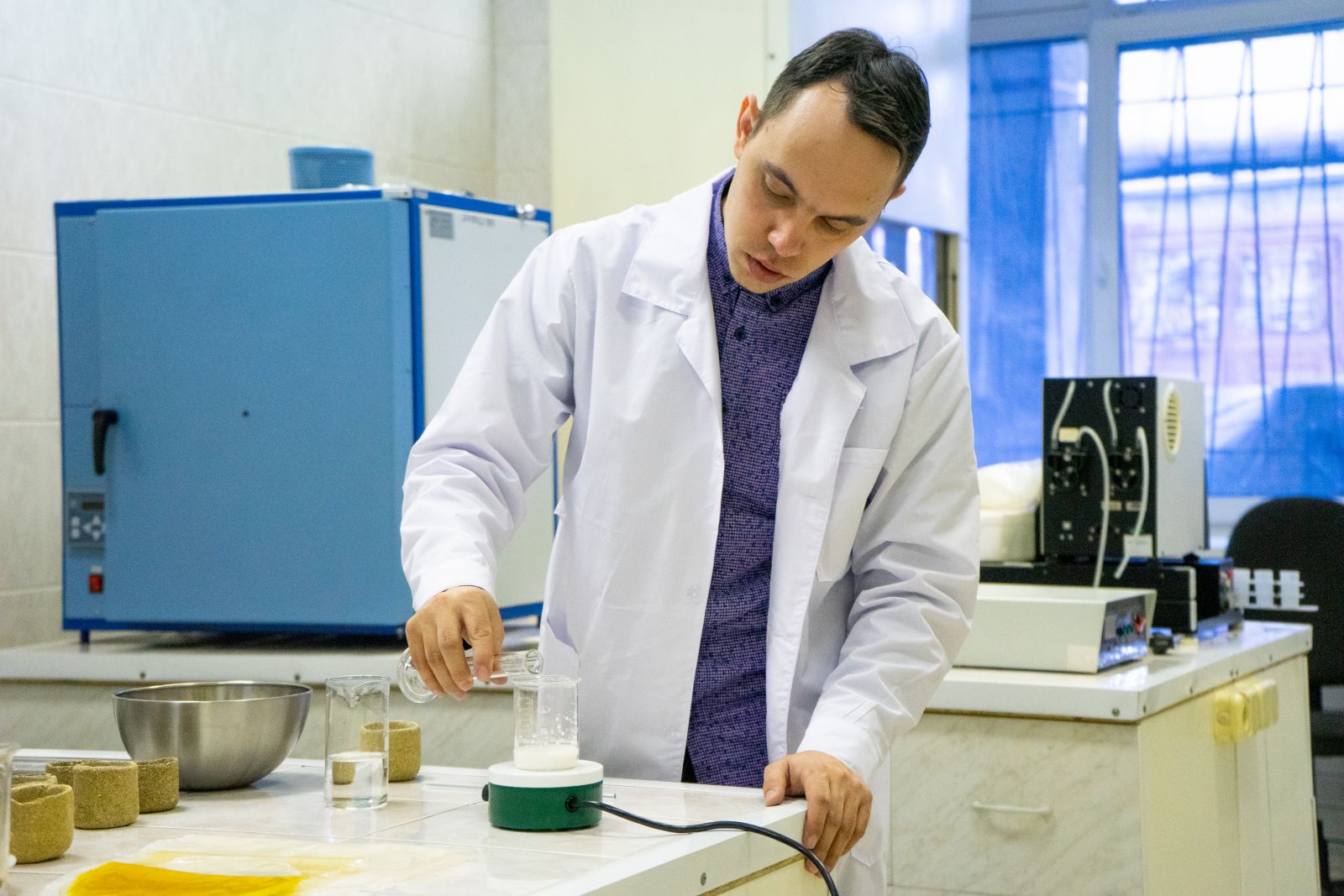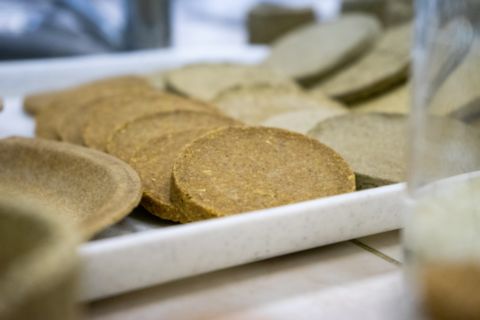SUSU scientists discovered a new method of obtaining a polysaccharide composite material, based on which moulded biodegradable goods are produced. The technology of sonic treatment of this new composite material allows to made a 100% biodegradable and more durable eco-ware. Upon the results of this work, a patent was obtained and articles were published in the Russian collections of research papers.
The growing volumes of polymers and polymer goods production lead to the environment pollution. In this context, the issue of such materials’ disposal gains more importance. The development of new polysaccharide composite materials will help solve the problem of their biodegradability. Research studies in this field are being conducted at the SUSU School of Medical Biology under the guidance of Doctor of Sciences (Engineering), Professor Irina Potoroko.
This research is being fulfilled within the “Eco-environment of Post Industrial Agglomeration” strategic project under the Priority 2030 program, which is being implemented as part of the Science and Universities National Project.

The scientists obtain new composite materials from phytogenic waste by exposing it to low-frequency ultrasound. To prepare a composite ingredient, organic films composed of a mixture of plant polysaccharides are used. Suspensions from various types of starch undergo sonic treatment at certain parameters of exposure. The optimal parameters of sonic treatment were determined by the scientists in the course of the research.
Exposure to ultrasound made it possible to obtain a durable and 100% biodegradable product, which absorbs water.
“The developed technology has no analogues. It allows to use composite materials for the technology of obtaining moulded biodegradable goods, for example, ware. At the same time, secondary waste from grain-and-flour production is used as raw materials,” commented SUSU young scientist Artem Malinin.

Currently, the scientists have created pilot samples of moulded materials (plates) based on polysaccharide composite material. To test the developed composite material in moulded goods, an upgraded П-500 hydraulic press was used, as well as a press-mould designed by an engineer of the SUSU Composite Materials Laboratory Aleksandr Nikonov.
The moulded biodegradable material can become a credible alternative to using polystyrene foam trays and film materials for goods pre-packaging at retail and wholesale commercial enterprises and catering organisations. The packaging materials used today take 100 years to decompose or do not decompose at all. The results of this research will be helpful at practical classes when training specialists in various academic programmes.
This research is being conducted at the Research Laboratory for Nature-like Converging Technologies and Eco-materials, which opened with the financial support from the Priority 2030 program in 2022. The developments were proposed for implementation to the Ministry of Agriculture of the Chelyabinsk Region.
It is planned to publish the results of the research in this field both in Russian and international top-rated journals: Food Science & Nutrition and International Journal of Food Science.
For several years now, the team of scientists have been working on obtaining biodegradable materials. Earlier they developed the technologies of obtaining biodegradable ware and packaging.
South Ural State University is a university of transformations, where innovative research is conducted in most of the priority fields of science and technology development. In accordance with the strategy of scientific and technological development of the Russian Federation, the university is focused on the development of big scientific interdisciplinary projects in the field of digital industry, materials science, and ecology. In 2021 SUSU became the winner in the competition under the Priority 2030 program. The university acts as a regional project office of the World-class Ural Interregional Research and Education Centre (UIREC), which is aimed at solving the tasks of the Science and Universities National Project.
Mass media about us




